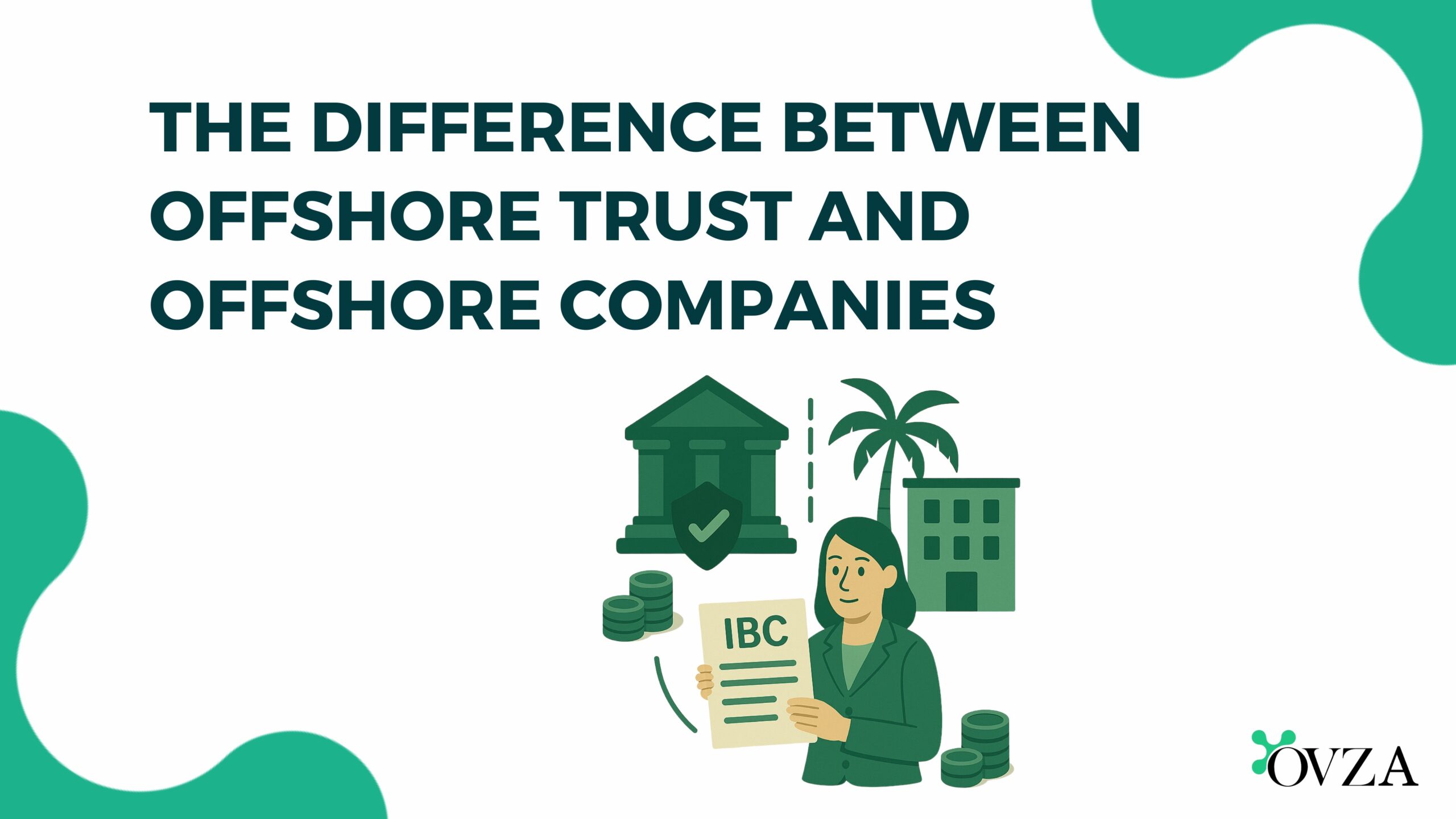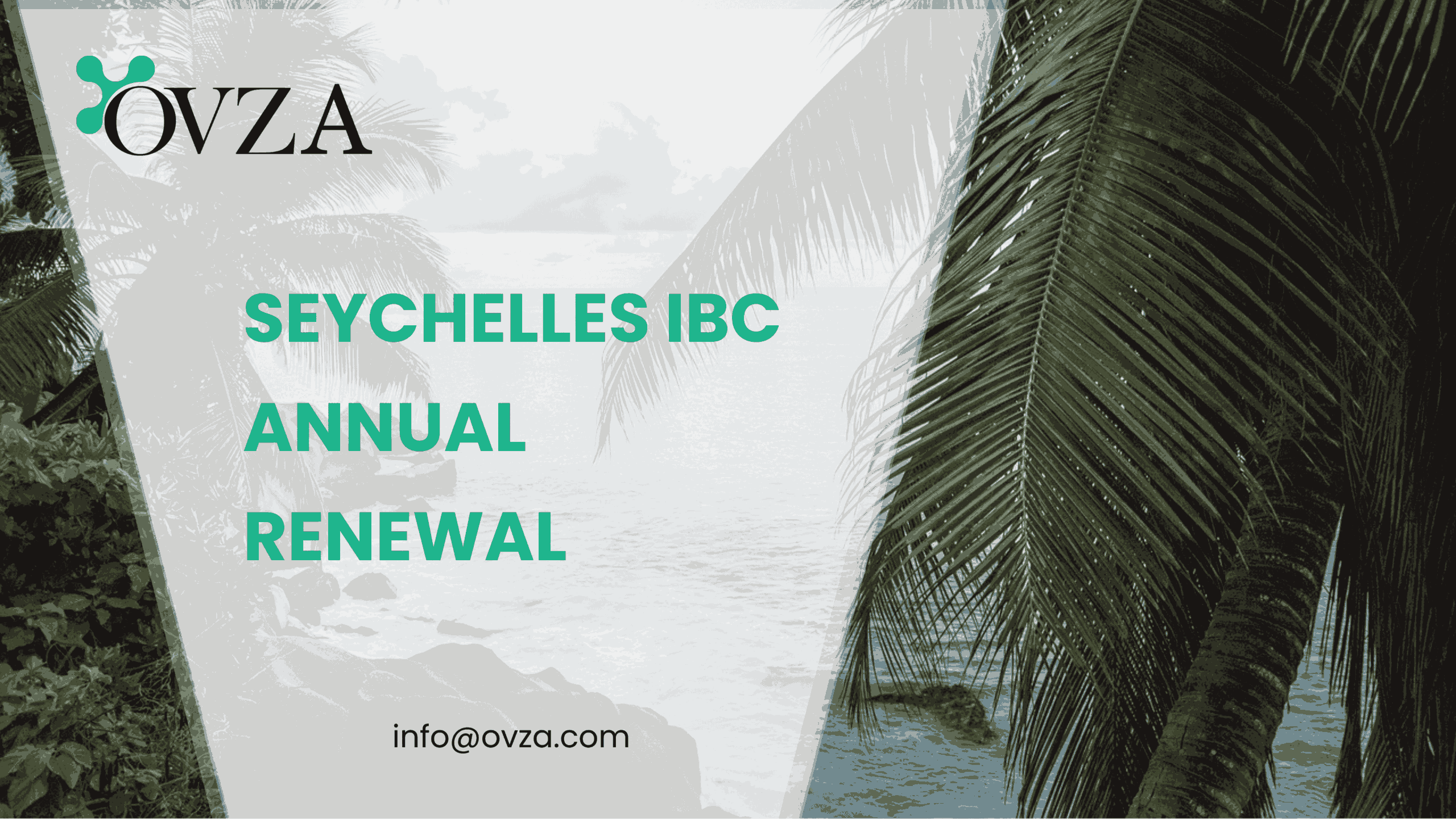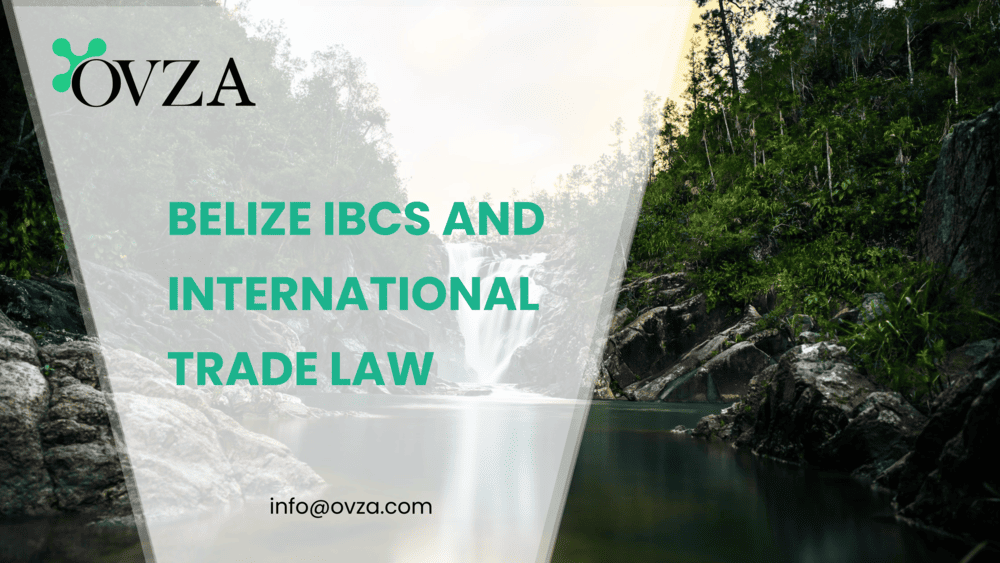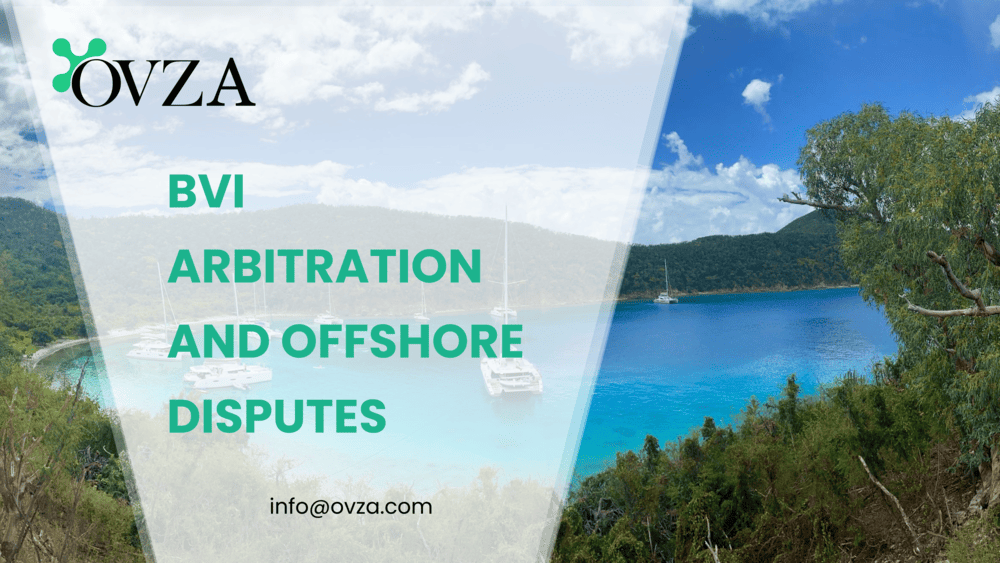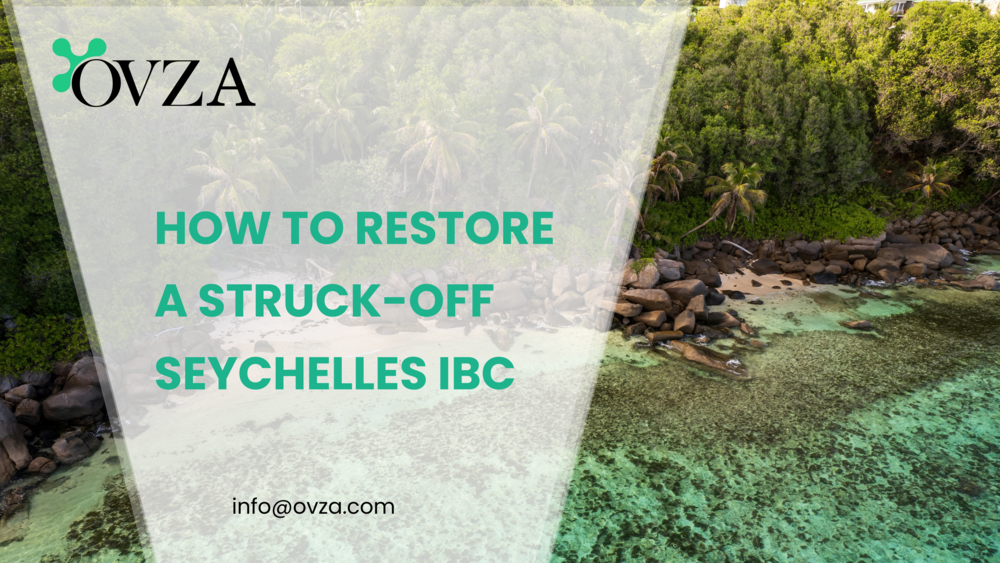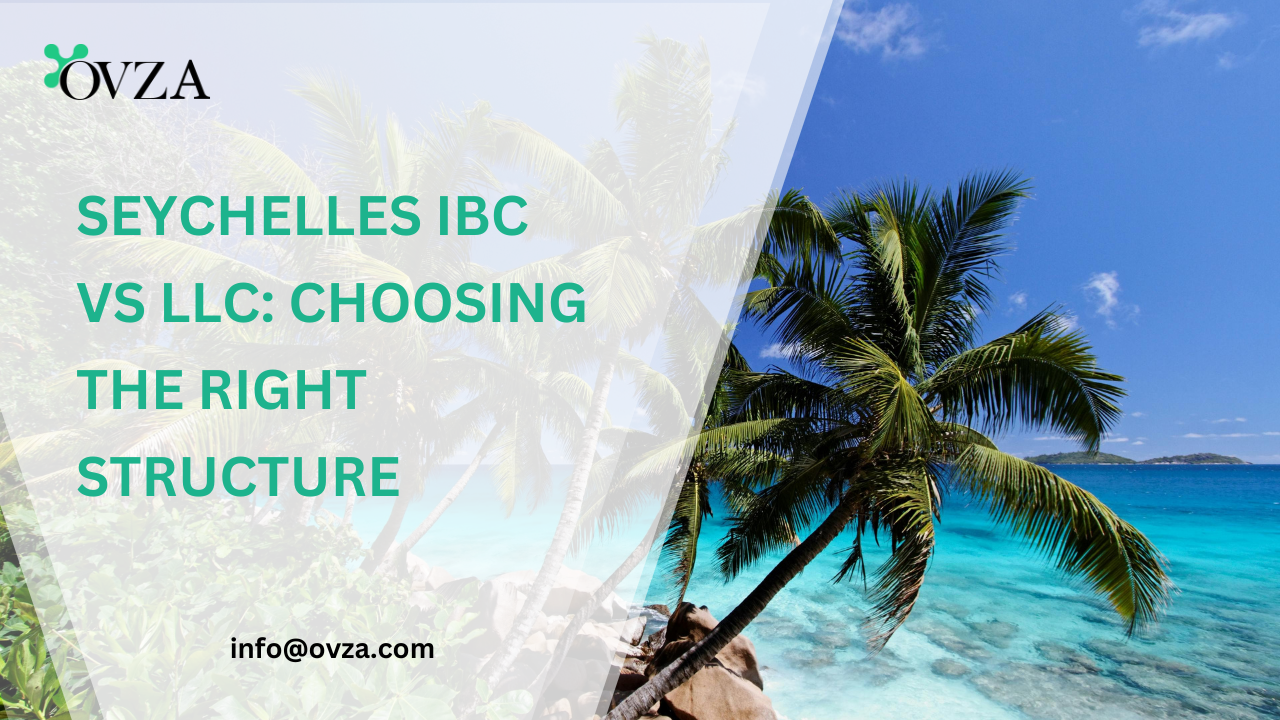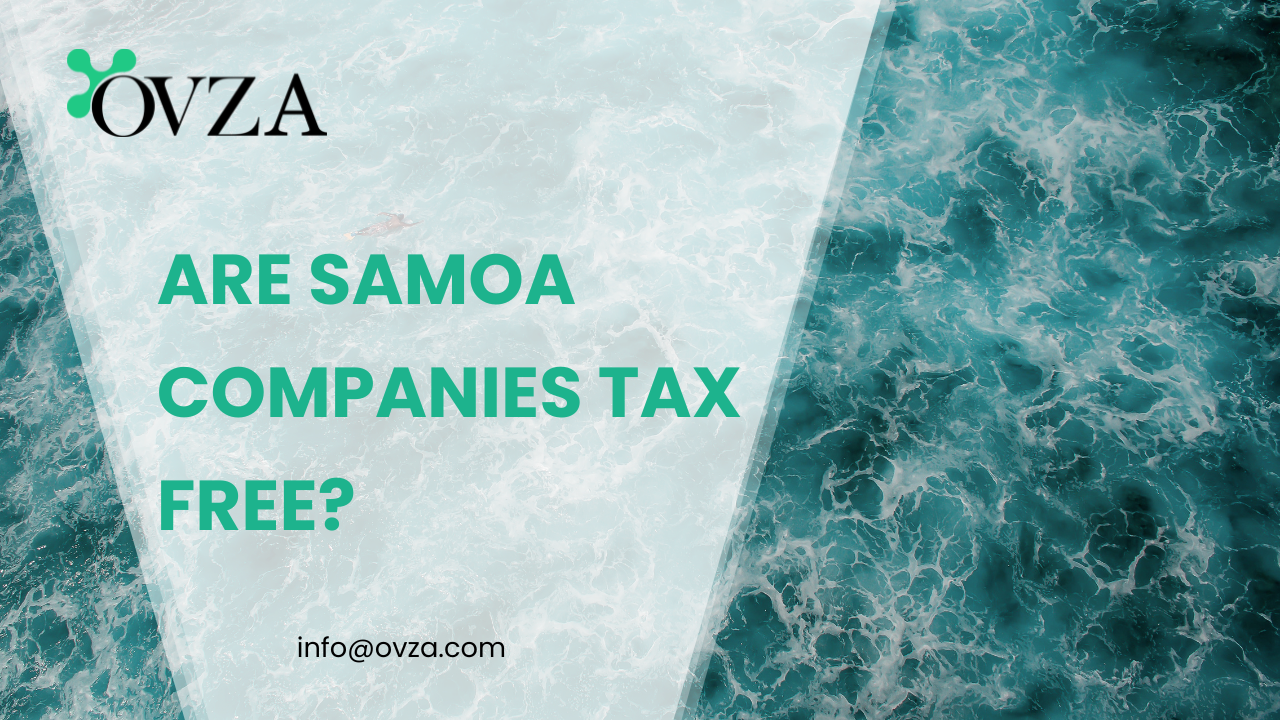The difference between offshore trust and offshore companies lies in their legal structure, control dynamics, and purpose within global planning. Although both vehicles are used extensively in offshore financial structuring, the difference between offshore trust and offshore companies is significant from a legal, regulatory, and practical standpoint. Each offers distinct advantages and limitations depending on the client’s goals—whether those involve asset protection, estate planning, tax optimization, or global investment structuring.
An offshore trust is a fiduciary arrangement based on common law principles, wherein a trustee holds and manages assets on behalf of beneficiaries, usually governed by specialized trust legislation. In contrast, an offshore company is a legal person—most often an International Business Company (IBC) or Limited Liability Company (LLC)—formed under corporate law, with directors and shareholders controlling the entity.
To understand the difference between offshore trust and offshore companies, it is necessary to explore how each structure is created, what legal status it holds, and how control and ownership are exercised in each case.
Legal Formation and Status
At its core, the difference between offshore trust and offshore companies begins with their creation and legal nature.
An offshore trust is not a legal entity in the traditional sense; rather, it is a legal relationship recognized under equity and trust law. It arises when a settlor transfers ownership of assets to a trustee, who holds and manages them for the benefit of one or more beneficiaries. The trust is typically formed through a trust deed executed in accordance with legislation such as the Belize Trusts Act or the Nevis International Exempt Trust Ordinance. Jurisdictions like the Cook Islands, Nevis, and Belize have developed robust legal frameworks offering strong protections for trust structures, including non-recognition of foreign judgments.
An offshore company, on the other hand, is a separate legal entity with full legal personality. It can own property, sue and be sued, and carry out business activities in its own name. It is typically formed by filing incorporation documents with the relevant corporate registrar—such as the BVI Financial Services Commission—and is governed by legislation like the BVI Business Companies Act, 2004. Offshore companies are favored for commercial operations, holding assets, intellectual property management, and international contracting.
Thus, a key difference between offshore trust and offshore companies is that the former is a relationship without legal personality, while the latter is a corporate body with rights and liabilities independent of its owners.
Parties Involved and Legal Roles
Another important difference between offshore trust and offshore companies lies in the roles and responsibilities of the parties involved.
| Offshore Trust | Offshore Company |
| Settlor – Transfers assets into the trust | Shareholders – Own the company and may receive dividends |
| Trustee – Holds legal title and manages the trust | Directors – Manage company operations and governance |
| Beneficiaries – Entitled to benefit from assets | Officers (if appointed) – Handle specific management functions |
| Protector (optional) – Oversees trustee actions | Corporate Secretary (if required) – Maintains company records |
Shareholders in an offshore company retain control either directly or through appointed directors. The use of nominee directors and shareholders is common in offshore jurisdictions to enhance confidentiality. Unlike trustees, corporate directors do not owe fiduciary duties in equity but are subject to statutory and common law duties under company law.
The difference in how authority is structured and exercised further reinforces the difference between offshore trust and offshore companies—the former being designed to separate ownership from control, and the latter consolidating both in the hands of the beneficial owner or their representatives.
Tax Treatment and Reporting Obligations
One of the most complex aspects of the difference between offshore trust and offshore companies is how each is treated for tax and disclosure purposes across various jurisdictions. While both can be structured in tax-neutral environments, their classification under foreign tax laws—such as those of the U.S., U.K., Canada, or EU countries—differs substantially.
An offshore trust is generally considered a pass-through or look-through structure in many onshore jurisdictions. Its tax treatment depends on the residence of the settlor, the beneficiaries, and the location of the trustee. For example, in the U.S., a trust may be classified as a grantor trust if the settlor retains certain powers, meaning the settlor is taxed directly on the income. If the settlor gives up control, it may be classified as a non-grantor trust, potentially shielding income from immediate taxation until distributions are made to U.S. beneficiaries.
Moreover, offshore trusts may trigger reporting obligations under FATCA, CRS, or domestic trust disclosure regimes. Beneficiaries and settlors may be required to report their interest in the trust, depending on residence and national tax law. This reporting regime underscores another practical difference between offshore trust and offshore companies—namely, that trusts often involve more intrusive disclosure obligations for beneficiaries.
In contrast, an offshore company is usually treated as a foreign corporation. Income earned by the company is generally not immediately taxable to its shareholders unless certain anti-deferral rules apply (such as Controlled Foreign Corporation (CFC) rules in the U.S., or GILTI provisions). Offshore companies may face additional scrutiny from tax authorities in onshore jurisdictions, especially if they are seen as lacking economic substance or being used for passive income accumulation.
However, offshore companies typically offer more flexibility for international trade, invoicing, investment holding, and digital business. Their corporate status makes them more compatible with banking institutions, e-commerce platforms, and legal contracting. That operational flexibility reflects another difference between offshore trust and offshore companies, especially for active business purposes.
Asset Protection and Legal Resilience
Asset protection is one of the leading motivations behind both structures, but the difference between offshore trust and offshore companies becomes stark when evaluating legal resilience.
A properly structured offshore trust—especially in a jurisdiction that enforces strong asset protection statutes and short limitation periods for creditor claims—can be an exceptionally strong shield. In jurisdictions like the Cook Islands or Nevis, trust law expressly denies recognition of foreign judgments and requires creditors to meet a high evidentiary threshold, including proving fraudulent intent beyond a reasonable doubt and filing within strict timeframes (often as short as 1-2 years).
By contrast, while offshore companies offer some level of asset separation through the corporate veil, they are generally less robust in resisting creditor action if ownership can be proven and if a court pierces the veil on grounds of fraud or sham. The presence of nominee directors or shareholders may offer privacy but does not guarantee legal protection against disclosure or asset seizure in the event of litigation.
This makes a significant difference between offshore trust and offshore companies: the trust is typically used for passive holding and protection of wealth, while the company is better suited for active operations or transactions. The trust inherently limits control, which courts may view favorably in assessing whether the structure was used abusively. A company, however, may be scrutinized if the beneficial owner maintains full control while seeking to avoid tax or legal obligations.
Use Cases and Suitability
Understanding the practical difference between offshore trust and offshore companies also requires a look at when each structure is best deployed.
| Offshore Trusts | Offshore Companies |
| Intergenerational wealth planning | International business operations |
| High-level asset protection against future claims | Investment holding and corporate structuring |
| Estate planning across multiple jurisdictions | Cross-border e-commerce or SaaS platforms |
| Holding personal investment portfolios, art, or real estate | Managing intellectual property |
| Ensuring discretion and long-term control through a protector | Serving as subsidiaries or joint venture vehicles |
In many advanced offshore structures, both tools are used together: a trust may hold the shares of an offshore company, thereby combining operational flexibility with asset protection. This hybrid structuring approach minimizes risk while optimizing tax and legal outcomes, but only when executed with precision and full legal compliance.
Conclusion
The difference between offshore trust and offshore companies is not simply technical—it defines the entire legal and strategic purpose of the structure. A trust separates control from benefit, relying on fiduciary law to protect assets over time. A company consolidates control and function, making it ideal for active use but more exposed in litigation or regulatory review.
Trusts are best for:
- Asset protection
- Estate planning
- Long-term family governance
Companies are best for:
- Commercial activity
- Investment management
- Holding IP or international contracts
Choosing between them—or integrating both—requires an understanding of jurisdictional law, tax residency implications, and long-term compliance costs. In sophisticated structures, trusts may own offshore companies to maximize privacy, flexibility, and legal protection. Regardless of the configuration, knowing the difference between offshore trust and offshore companies remains essential for building legally compliant and effective offshore strategies.
Disclaimer: The information provided on this website is intended for general reference and educational purposes only. While OVZA makes every effort to ensure accuracy and timeliness, the content should not be considered legal, financial, or tax advice.


